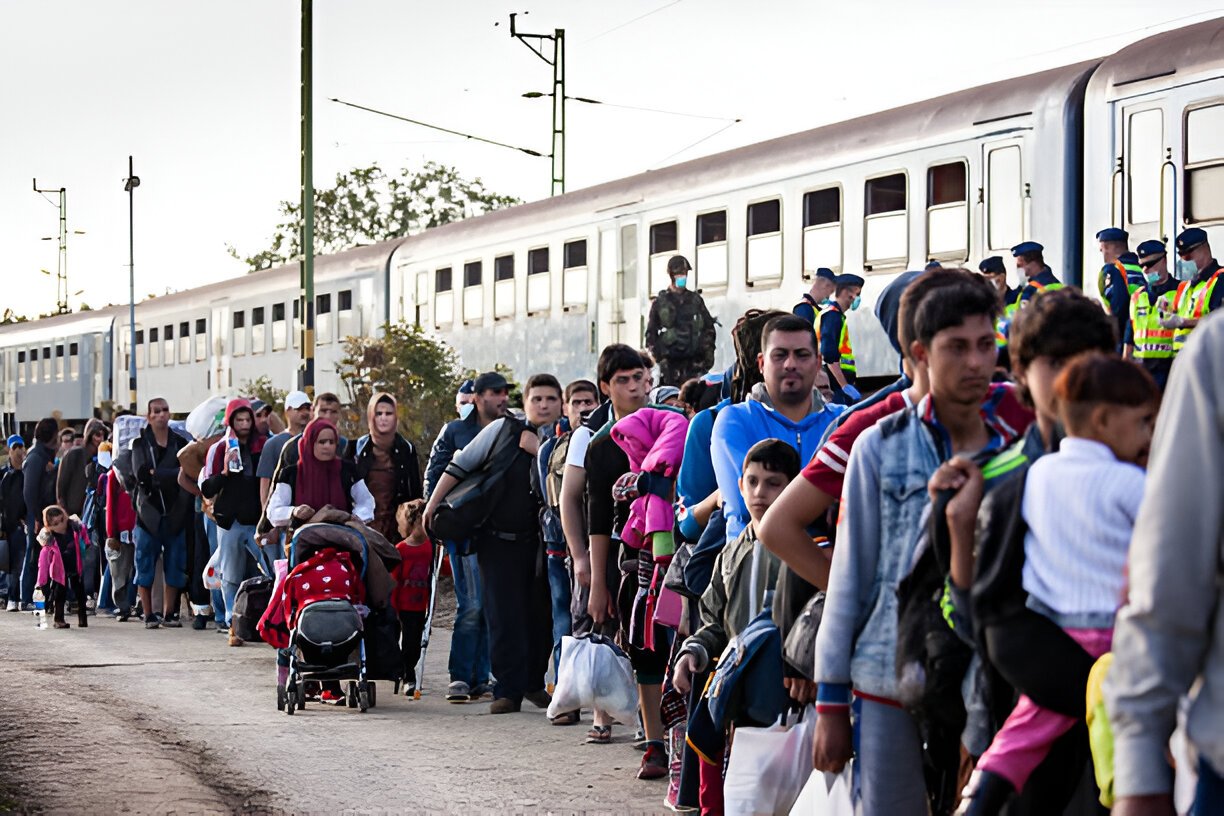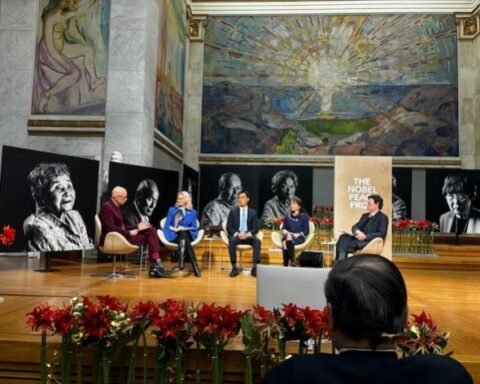Since it’s the first time he’s been able to openly discuss what happened to his family in Douma, a suburb of Damascus in the Eastern Ghouta, in 2018, Tawfiq Diam is distraught.
“My tongue would have been severed by Bashar al-Assad’s army if I had previously spoken out. I would have had my throat cut by them. He claims that we were not permitted to discuss it.
On April 7, 2018, Tawfiq’s wife and his four children—Joudy, Mohammed, Ali, and Qamar—all between the ages of eight and twelve were killed in a chemical assault.
According to a report released last year by the international watchdog, the Organization for the Prohibition of Chemical Weapons (OPCW), it is believed that a Syrian Air-Force helicopter left the nearby Dumayr air base just after 19:00 that day and dropped two yellow cylinders that struck two apartment buildings, releasing highly concentrated chlorine gas.
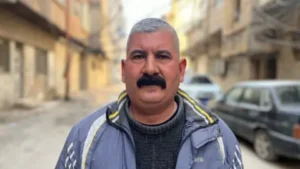
According to Tawfiq, when the bombs struck, his family was right outside his ground-floor house.
“People were shouting ‘chemicals, chemicals’ in the streets when I heard an explosion. I ran out. The scent was awful. I observed people’s mouths spewing out yellow foam. My kids were choking and struggling to breathe. He claims to have seen individuals lying in the roadway.
At least forty-three persons were murdered, according to the OPCW. More than 100 people were killed, according to Tawfiq.
“Even I nearly passed away. I spent ten days in the hospital. He claims that just five or six men made it out of this compound alive.
The administration of Assad denied ever employing chemical weapons. Additionally, Russia, an ally, said that the Douma incident was “staged”.
During Syria’s civil war, Eastern Ghouta was one of the most hotly contested regions for five long years.
In an attempt to wrest control of the region from rebel fighters commanded by the organization Jaish al-Islam, the regime eventually besieged it and, with the help of its ally Russia, bombed the region indiscriminately.
As we drive through it now, we can see the devastation that has been done to it everywhere. Finding a single building that isn’t ravaged by war is difficult; several have been so severely blasted out that they are only shells of buildings.
Chemical weapons, which are prohibited by the Chemical Weapons Convention and the Geneva Protocol, were used to assault Douma on multiple occasions in Eastern Ghouta.
Soon after the chlorine assault, Douma was taken by Bashar al-Assad’s forces, and the victims’ accounts were never told in full.
Taking out the one picture he has of his kids, Tawfiq adds, “Not a day goes by when I don’t think of my children,” his eyes brimming with grief.
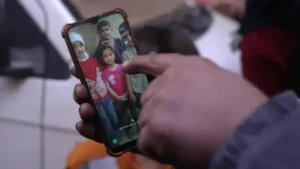
More people approach us to share their stories as we speak with Tawfiq.
According to Khalid Naseer, the 2018 chlorine attack also claimed the lives of his pregnant wife Fatima, his two-year-old son Omar, and his infant daughter Nour.
“Those who were killed were mostly children and women.”
He lets loose the rage he’s been holding inside for the past six years.
“Everyone is aware that Bashar al-Assad killed his own people and is a liar and oppressor. With his emotions running high, he yells, “My wife was killed two days before she was due to deliver our baby.”
The employment of chemical weapons in the region was not limited to the chlorine gas strike.
Hundreds of civilians were killed in 2013 when rockets carrying the nerve agent sarin were fired at a number of rebel-held areas in Eastern and Western Ghouta. The use of sarin was confirmed by UN specialists, but they were not asked to assign guilt.
Assad agreed to sign the Chemical Weapons Convention and destroy Syria’s stated chemical stockpile, but he disputed that his forces fired the rockets.
Human Rights Watch recorded at least 85 chemical weapons attacks in Syria between 2013 and 2018, with the Syrian government allegedly responsible for most of them.
The Syrian military was implicated in four further chemical weapons use cases in 2017 and 2018, in addition to Douma in 2018, by the OPCW’s Investigation and Identification Team. Twenty cases involved the use of chemical weapons, according to a previous fact-finding team that was not required to name the offenders.
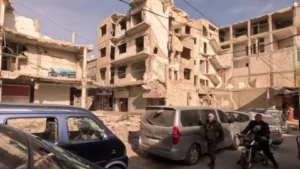
A short drive away, Khalid and Tawfiq led us to a mound by a road. They think the bodies of their family members were taken here and interred in a mass grave by the dictatorship.
It is impossible to determine whether the fragments of bones seen on the ground, surrounded by gravel, dirt, and stones, are human remains.
“I swear to God, this is the first time I’ve ever been here. Tawfiq claims, “They [the regime] would have executed me if I had attempted to come here earlier.”
“I used to bike by the side of this road on Eid and peek swiftly in the direction of this [the mound] when I was missing my family. It brought tears to my eyes.
In order to provide his family with a respectable funeral, Tawfiq wants the tombs to be dug up.


